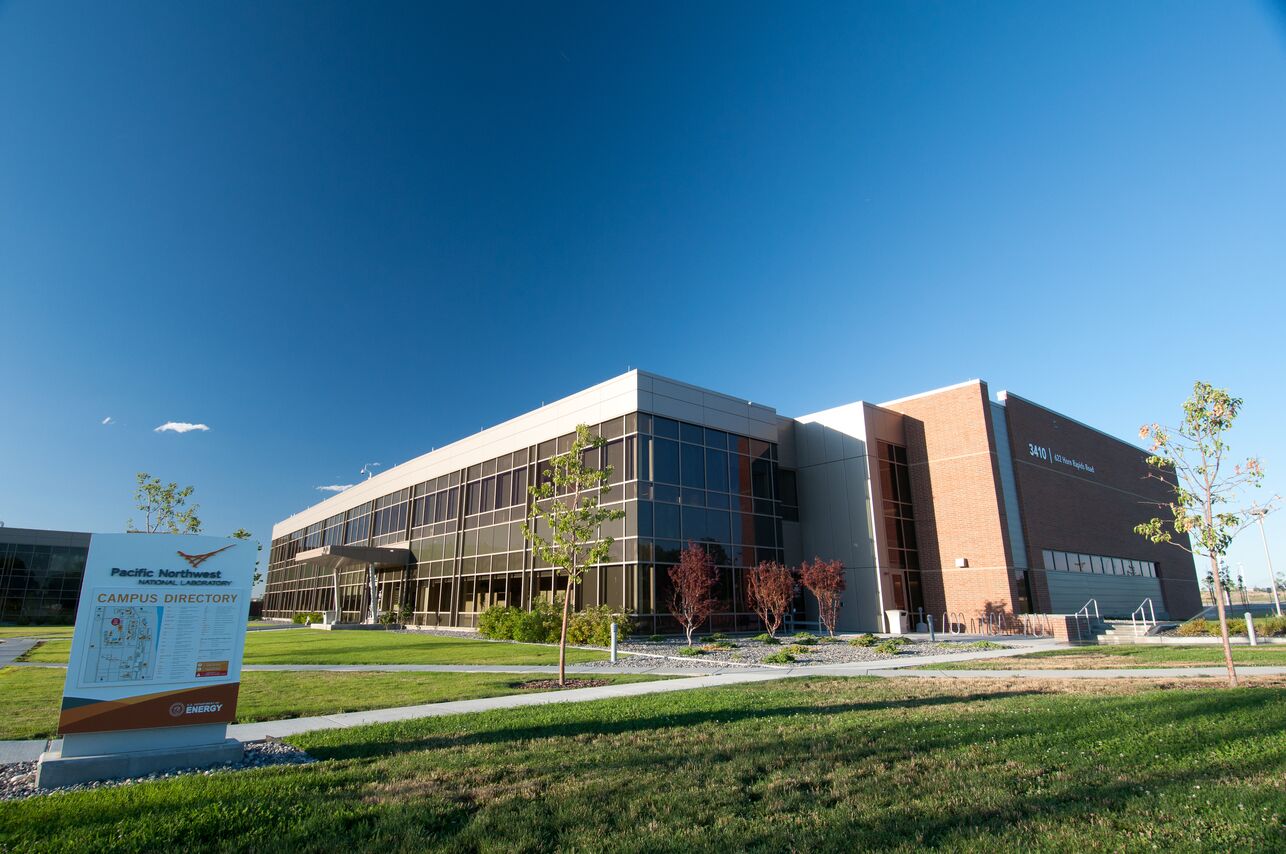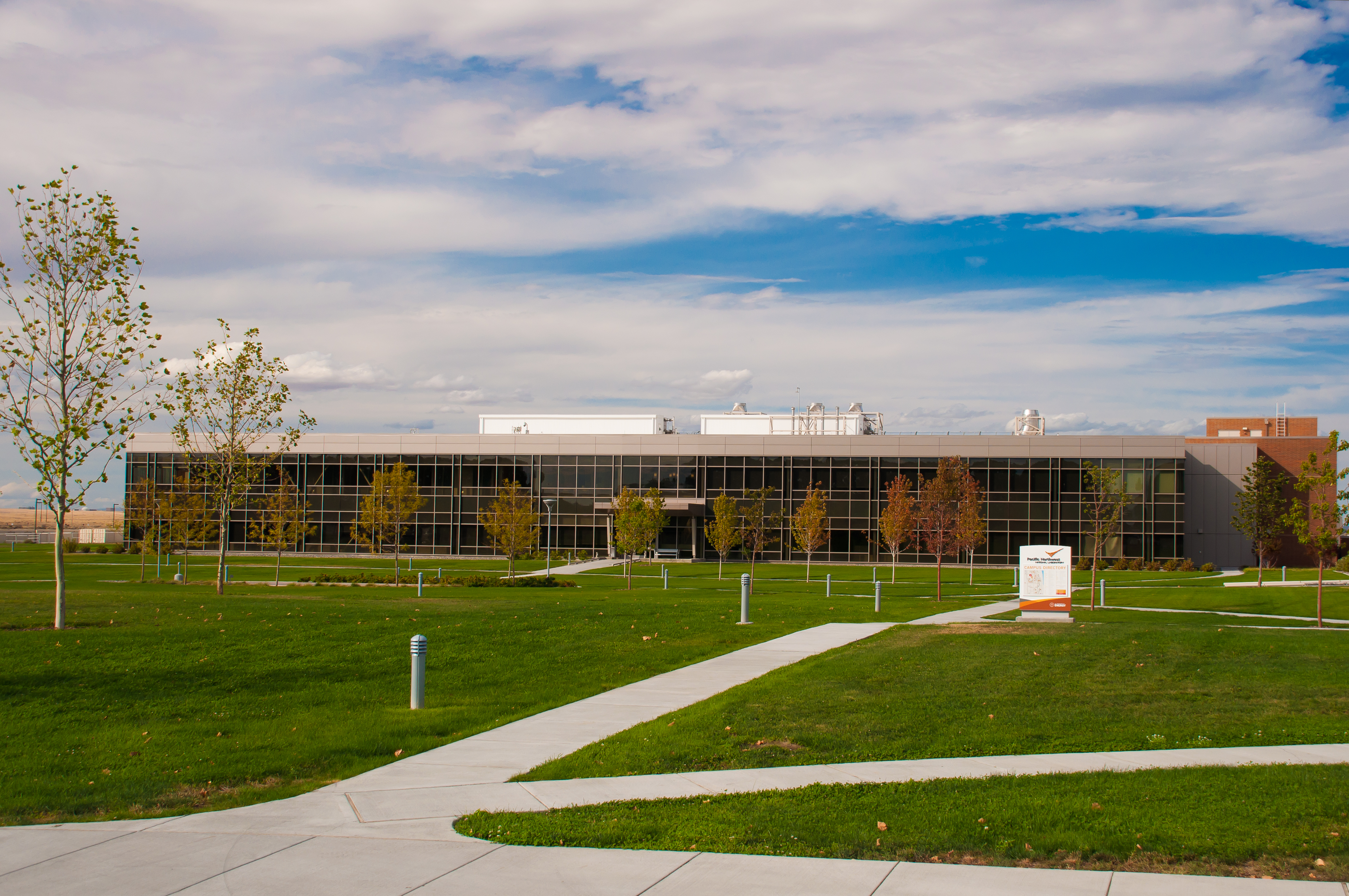Facilities
Radiochemical Processing LaboratoryThe Radiochemical Processing Laboratory (RPL) is a Hazard Category II non-reactor nuclear research facility located at PNNL. The RPL has been assisting the nation with critical mission needs in nuclear science since 1953. Currently, the RPL continues to carry the baton for groundbreaking radiological research and development and RPL staff execute projects that promote reactor safety, improve and expand nuclear waste clean-up efforts, isolate isotopes to cure cancer, and advance nuclear nonproliferation technology. In RPL, staff developed methods for life-saving yttrium-90 production and research opportunities in RPL continue to expand, with investments in advanced scientific instrumentation and access as a partner institution with DOE’s Nuclear Science User Facilities program. RPL’s rich history for peacetime efforts was recognized by the American Nuclear Society in 2017 with the Nuclear Historic Landmark Award. |
|
3410 BuildingBuilt in 2010, the Physical Sciences Facility (PSF) is a complex of five DOE Office of Science-owned buildings that contains laboratories for materials science and technology, radiological detection, and ultra-trace analysis. The complex includes the 3140 and 3420 buildings. The 3410 building contains the Material Science and Technology Laboratory. |
 |
3420 BuildingLocated adjacent to the 3410 building is the 3420 building, which houses the Radiation Detection Laboratory. In this building, Stirling radioisotope generators use plutonium-238 to generate electricity. |
 |